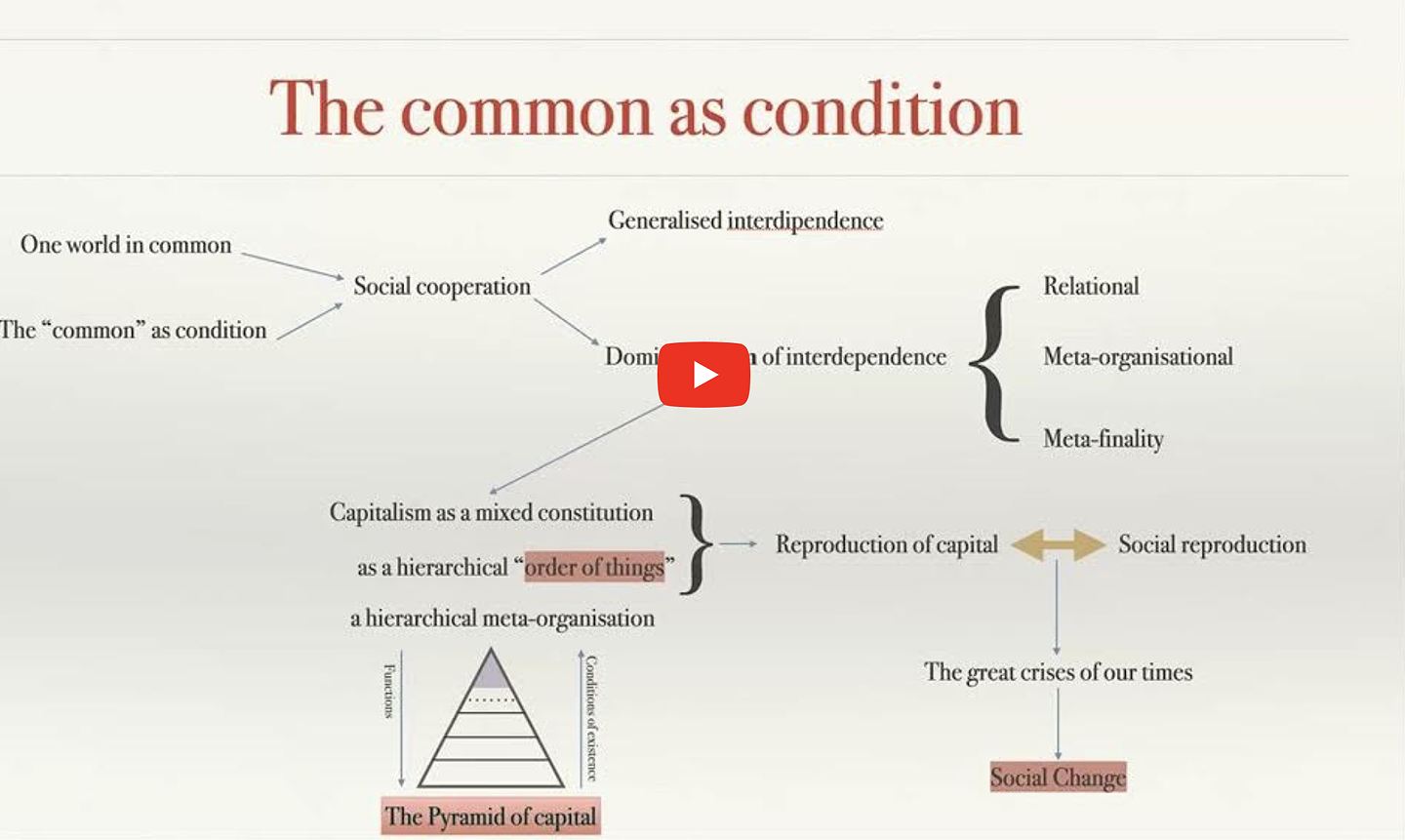
(or anything else big scale) as a Commons: a Work in Progress
Speaker Bio
In the midst of devastating crises of social reproduction and ecological catastrophe, to think about radical social change in the ways we reproduce our lives in common on this planet is paramount. By radical social change I mean a change in some fundamental ways of the current “order of things” that governs and form our social cooperation, what we generally call capitalism The big question I am trying to address with this paper is around the organizational form of radical social change.
My analysis build on previous work in which I have identified two organizational axis through which social change must move in order to challenge — at least in given contexts — capitalist hegemony over social cooperation: the construction of commons, and the development of social conflict. In this paper I bring together these two axes by considering Stafford Beer VSM as a design model for a viable organisation whose identity is rooted in the pursuit of socially just end environmentally sustainable forms of social cooperation that prioritize social reproduction over the expanded reproduction of capital. My approach may be a bit different from conventional design of VSM models in two aspects. First, the operational domain (system 1) in the VSM is not only filled by members “operatives” of an organization, but also subjects drawn from society at large that participate in a variety of movements and struggles over social reproduction. Second, I am not trying to design an organisation of the city as a whole as a common, an ideal that is based on VSM. Rather an organisation of commons and movements around issues of social reproduction inside the city, whose meta-finality is to create different forms of social cooperation and thus to contrast capital. The city here is the theatre of such organization, the external environment that the organisation in question seeks to transform into a “commons”, but It could be a region, the nation, a branch of an industry or the world for that matter that is, any large scale social complex system. In this sense, within the current “order of things”, considering the city, or any other large-scale entity, as a common, is always a work in progress.
